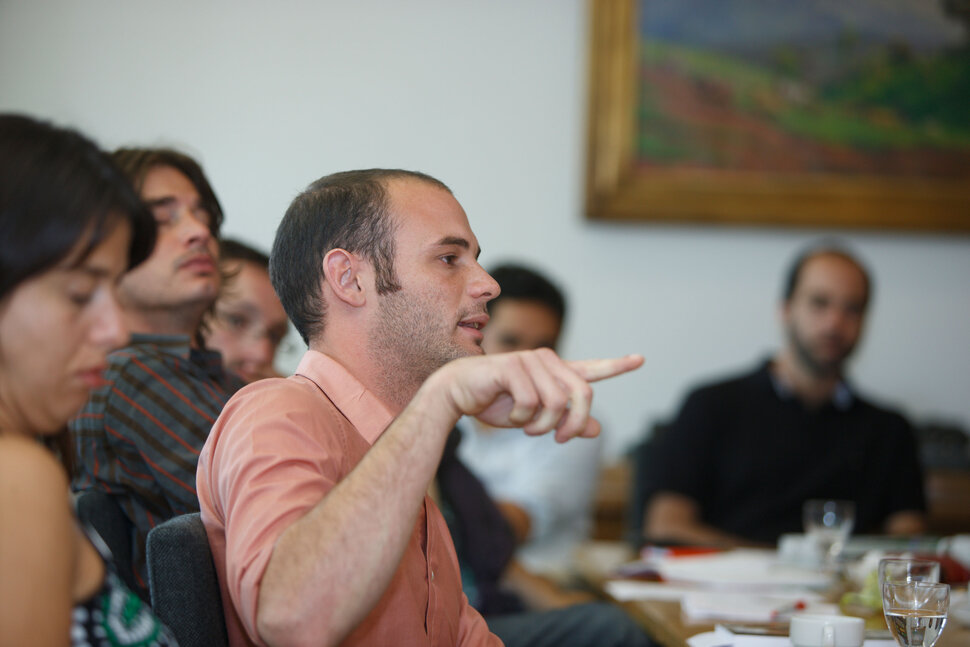Regional research at the IAI as a contribution to transatlantic exchange of experience and cross-border co-production of knowledge
The IAI conducts research in the humanities, cultural studies, and social sciences with a focus on Latin America, the Caribbean, Spain, and Portugal, as well as their transregional interconnections. Third-party funded projects, especially joint projects with national and foreign universities and research institutions, visits by guest scholars, international networks, and the institute's academic publication program play an important role in research at the IAI. The diverse, multimedia holdings of the library and special collections are central to the institute's research profile. Many of the IAI's projects are located at the interface between research and collections, as well as between science and culture. Based on the regional orientation of the collections and their multimedia nature, the IAI contributes to the debates on material and immaterial cultures in terms of content and methodology, also taking into account the effects of digital transformation.
The IAI is a central hub for German-language regional research on Latin America and the Caribbean thanks to its knowledge infrastructure, knowledge production, and diverse networks. The Institute has been represented on the board of the German Latin America Research Association (ADLAF) for more than 20 years; since fall 2024, the director of the IAI has been ADLAF chair. With regard to intra-European research cooperation on Latin America, the IAI has been involved in the Consejo Europeo de Investigaciones Sociales de América Latina (CEISAL) for many years.
The IAI is committed to nationally and internationally networked, cooperative research that addresses socially relevant topics and contributes to linking theory and practice. The research activities of the scientists at the IAI cover a broad spectrum of disciplines. The research is characterized by a strong focus on cooperation: with academic communities in Germany, within the framework of third-party funded projects, and with international visiting scholars. The joint production of knowledge with researchers from Latin America and the Caribbean, but also from other regions of the world, makes it possible to overcome Eurocentric perspectives, thus "provincializing" Europe and better understanding transregional interconnections. We do not view Latin America and the Caribbean as a "crisis region," but rather as an important space for innovation that offers a wide range of opportunities. Scientific cooperation between Latin America, the Caribbean, and Europe offers a wide range of opportunities for exchanging experiences, co-producing knowledge, and learning from one another. Comparing different perspectives and linking different knowledge practices can make an important contribution to solving common problems. “Latin America Matters”: Latin America is important for Germany and Europe because social experiences and knowledge production from this region provide answers to global social challenges, such as climate change, loss of biodiversity, interdependent inequalities, transnational migration, cultural diversity, and plural citizenship. However, the diverse knowledge production from Latin America and the Caribbean is not sufficiently known in Germany and Europe. This is not only due to language barriers, but also to structural inequalities in the international circulation of knowledge. In this context, the IAI, as a bridge-building institution for the humanities, cultural studies, and social sciences, makes an important contribution to bringing research findings from Latin America and the Caribbean into debates in German-speaking countries. The publicly accessible knowledge infrastructures, the institutional publication program, the institute's own research, the network of visiting scholars, and the diverse scientific and cultural events play an important role in this regard. Thanks to its experience in cooperation and translation, the IAI is uniquely positioned to make important contributions to such pluralistic, integrative, and intercultural transatlantic cooperation.
Against this backdrop, the principles and guidelines on open science are important for the IAI, as they aim to further open up science to society, make data, methods, and publications available according to open standards, and thus enable broader and more equitable access to knowledge. The IAI has its own open science strategy with the action areas of digitization for open science, open science publishing, and research data management. It is significantly involved in the development and implementation of the SPK's open science policy and is actively committed to the application of open science within its national and international committees and networks. Together with cooperation partners, it also carries out internationally oriented third-party funded projects in which open science approaches are tested and compared.

Knowledge – Cultures – Medialities. Latin America and the Caribbean in a transregional perspective. The 2025–2030 research line
From 2025 to 2030, research activities at the IAI will focus on the research line "Knowledge – Cultures – Medialities. Latin America and the Caribbean in a Transregional Perspective". The research line draws on the institute's collections and the scientific expertise available at the IAI, on its collaborations and networks, and addresses relevant global social challenges. It thus corresponds to the profile of the IAI and its role within the SPK network.